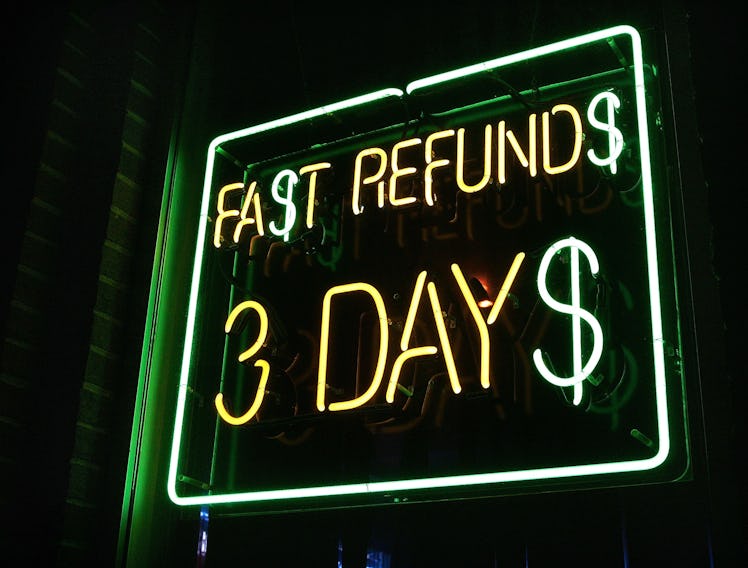
Here's How You'll Know Whether You're Getting A Tax Refund Or Not
It's no secret why people spend hard-earned money every single year to pay someone else to do their taxes. It's because filing taxes involves answering a lot of questions that aren't easy to answer. There's always one question people ask, though, that's usually more important than the rest: Will I get a tax refund? After all, the prospect of the government returning money to your bank account is one that people have reason to look forward to at the start of every calendar year.
There are two ways to answer the all-important question about the refund, one, general and one, complicated. First, let's start with the general.
A person is owed a refund if the amount of taxes the government has taken from their pay checks over the course of a year — an amount referred to as "taxes withheld" — is greater than the actual income tax figure that is determined while filing a tax return.
In such a case, the government will pay back the difference between the two figures, which will be the amount of a person's refund check. A super simple example would go like this: If your tax return determined that the income tax you owe is $6,000, but the amount of taxes withheld over the course of the previous calendar year was actually $7,000, then you'll be entitled to a $1,000 refund check.
Here comes the more complicated answer now.
Figuring out whether you'll get a tax refund — especially if you're trying to predict an answer before completing an actual tax refund — typically involves a lot of paperwork and a lot of variables.
The lower your taxable income is than your gross income, the higher the chances are that you'll be owed a refund. That's because the lower your taxable income is, the more likely it becomes that you were overtaxed during the calendar year.
People filing tax returns typically see a lowering of their taxable income — the portion of your gross income that is determined to not be exempt from taxes — after accounting for deductions, of which there are all types.
For instance, if you're a recent college graduate and you've been paying off student loans, you can deduct the amount of interest you paid over a calendar year from your taxable income, up to $2,500.
That's the student loan deduction.
If you've given a certain amount of money to charity over the course of a calendar year, that too can also result in a deduction. Then there's the most common one: the standard deduction.
If a person filing their taxes chooses to itemize their deductions — or, in other words, list specific deductions like donations and student loan interest paid — then that person can opt to take a standard deduction based on their filing status. Then there are other, lesser known expenses that can be used as deductions, like your moving expenses for a new job.
In general, if you're heading into tax season knowing you have a good number of deductions that will be listed on your tax return, you should be able to make a good guess on whether or not you'll receive a tax return.
In 2019, however, that might get a little complicated.
That's because the 2019 tax season will be the first that is affected by the tax reform law signed by President Donald Trump at the tail end of 2017. The law will prompt many changes, including a near-doubling of the standard deduction.
The bottom line? There are a lot of new rules coming, so it might not be as simple to estimate how much of a refund you'll receive before filing a tax return. After filing your return it's easy to tell if you'll be getting a refund check.
If your taxes withheld are higher than your income tax, you're in business.